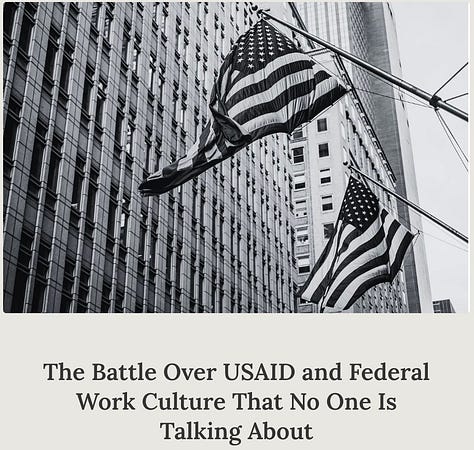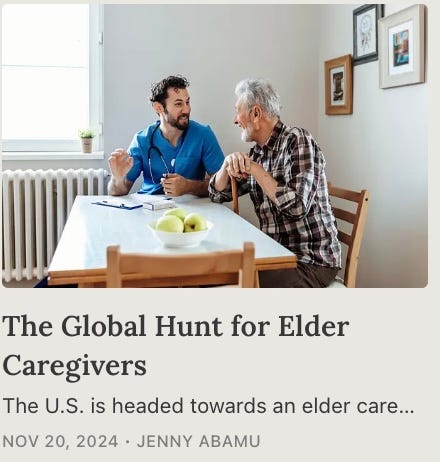Cultural Complications With Trump’s Middle East Riviera Vision
President Trump’s Latest Vision for Gaza Resurrects Old Colonial Fantasies—and Ignores Modern Realities.
“Ama yabancı.” But he is a foreigner.
Those two words—casually tossed out by a Turkish colleague who didn’t realize I spoke the language well enough to understand him—still echo in my mind. It was 2012, and I taught middle school English in Istanbul. We had just held a contest for the best English-language speech in the school. An Iraqi fifth grader stole the show: He was charismatic, eloquent, and spoke with confidence that put older students to shame. But when it came time to choose the winner, a Turkish teacher objected, insisting that a “foreigner” should not represent the school. My protests didn’t matter.
At that moment, I understood something I hadn’t quite grasped before—the level of discrimination migrant populations from Muslim countries faced, even in other Muslim countries.
I remember thinking, If this poor kid couldn’t win a middle school speech contest in Turkey, what could he win? I fumed, imagining the nights he stayed up practicing. Why even let him compete when the system was rigged?
President Donald Trump recently reminded me of how little understanding we still have regarding the cultural, nationalistic, religious, and ethnic differences of people outside the United States. Last week, the world watched in shock as Trump suggested that the United States should “take over” Gaza and transform it into the “Riviera of the Middle East.” Even more concerning, his proposal implied forcing Palestinians to leave and outsourcing their welfare to other Arab states, primarily Egypt and Jordan—almost as if anyone who speaks Arabic could simply be shuffled into whatever leftover territory remains.
Want More Content Like This?



In one sweeping proposal, Trump resurrected the old colonial mindsets that painfully carved up most of the non-white world. His seeming disregard for the complex realities of nationalism, ethnicity, and history risks igniting new upheavals in a region already scarred by forced displacement.
Are We Colonialists Again?
From colonial cartographers carelessly redrawing borders to the present day, powerful governments have ignored cultural, ethnic, and national distinctions they deemed inconvenient. White imperialists presumed the right to arrange the others however they saw fit—carving up entire regions with a few strokes of a pen.
These decisions left minority communities crammed into tiny pockets of land or stranded in countries whose fragile economies and social structures could hardly accommodate them. Time and again, internecine conflicts erupted over crumbs of resource allocation. That legacy persists in border disputes, refugee crises, and everyday discrimination—where entire groups are lumped together, misread, and dismissed.
The Sykes–Picot Agreement (1916) and the Balfour Declaration (1917) rearranged the Middle East region with limited concern for ethnic, religious, or tribal realities, leaving minority communities in constant tension and vulnerability.
The result?
The Arab-Israeli conflicts (1948, 1967, 1973, and beyond), rooted in the fight for land and national identity.
The Lebanese Civil War (1975–1990), where religious and ethnic fault lines erupted into 15 years of violence.
The Kurdish struggle for autonomy across Turkey, Iraq, Syria, and Iran—directly tied to borders that split their population into multiple states and denied them a homeland.
Time and again, these conflicts have escalated into full-scale wars, displacing millions and turning political disputes into endless cycles of violence.
Why Lumping Groups Together by Ethnicity Hasn’t Worked?
Some scholars have pointed out that all borders are arbitrary, taking in, and frequently splitting people groups and cultures. So why are some situations worse than others? I return to my fifth-grade student’s situation—where discrimination strips away hope.
According to the United Nations Relief and Works Agency (UNRWA), about 5.9 million Palestinian refugees are registered across Jordan, Lebanon, Syria, Gaza, and the West Bank. Most fled or were expelled following the 1948 Arab–Israeli War and the 1967 conflict. These refugees often live in legal gray zones with limited rights, patchy job prospects, and tenuous residency status.
Jordan hosts more than 2 million registered Palestinian refugees, many of whom have built lives in cities like Amman and Zarqa. Yet, their legal standing and public acceptance remain complicated. During the 1970s, internal strife—fueled by concerns over Palestinian political influence—led to conflict in Jordan. Lebanon’s experience has been even more fraught, with Palestinian refugee camps beset by poverty and encircled by local factions wary of growing foreign communities. These complexities have only deepened since the Syrian civil war displaced millions more in the region.
I’ve seen variations of this dynamic firsthand. In Turkey, as a Black American educator and later as a diplomat, and in Saudi Arabia, where an unofficial quasi-caste system places local Saudis firmly above anyone else in society. Fear of outsiders—fueled by concerns over jobs, housing, and national identity—quickly transforms into policy. Minority students are kept out of schools. Jobs become harder to find. Political power becomes unreachable. This effectively traps people as second-class citizens, their hopes and dreams forever stuck under a glass ceiling.
So What?
It’s 2025, not 1925. We live in an era where culturally diverse people have more voice, more platforms, and more global awareness. We can teach people about the cultural layers that exist and why it’s complex and dangerous to carelessly lump people together. We have history books. We have references. We no longer need to replay the same script. As colonial logic resurfaces at the highest levels of power, we have the opportunity to advocate for a more thoughtful path forward.
The UN reports that Gaza’s population, now at nearly 2.2 million, already suffers from extreme poverty and infrastructural collapse. Few solutions won’t face extreme challenges and resistance. But that doesn’t mean we should avoid reflecting on the possible consequences of our foreign policy choices.
That Iraqi fifth grader in Istanbul only wanted to give a winning speech but lost because of his foreign passport. Multiply that injustice millions of times for displaced peoples, and you begin to grasp the scale of the crisis. How can people pushed out of their homeland expect to find real opportunity in countries already burdened by their own fragile economies and social strains? It won’t be easy, but we can do better this century.
You’re now more cultured because…
…you understand the complexities of nationality and ethnicity and how these factors affect displaced populations outside the United States.





